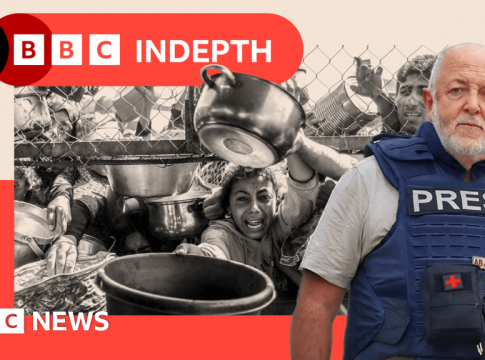Ongoing Conflict in Gaza Raises Legal and Humanitarian Concerns
Humanitarian Crisis Amidst Warfare
As the conflict in Gaza escalates, fundamental questions surrounding legality and humanitarian protections have emerged. Following the brutal Hamas attack on October 7, 2023, which resulted in the deaths of 1,200 Israelis, the ensuing Israeli military operations have sparked a global outcry regarding civilian casualties and alleged violations of international law.
At the heart of this conflict is the principle outlined in the Geneva Conventions: even amidst warfare, civilians must be afforded protection. However, reports indicate that more than 54,607 Palestinians, many of whom are civilians, have lost their lives in the ongoing military actions since the October attacks. The International Committee of the Red Cross (ICRC) has emphasized that these rules apply universally; any justification, including self-defense, cannot nullify the obligation to protect civilian lives.
Journalists in Danger
The flow of information from Gaza remains heavily restricted. At least 181 journalists have died since the conflict erupted, with reports indicating that Israel’s military has limited foreign press access to wartime operations, raising concerns about transparency and accountability.
Mirjana Spoljarić, President of the ICRC, has described the situation in Gaza as "surpassing any acceptable, legal, moral, and humane standard." With hundreds of thousands displaced and dire shortages of food and medical supplies, there are rising fears of a humanitarian catastrophe.
Legal Ramifications and International Response
Amid claims of potential war crimes, world leaders have begun to vocalize their concerns. British officials have argued that denying food and medicine to civilians constitutes a weaponization of hunger, a tactic classified as a war crime under international law. Similar sentiments have been echoed from French and Canadian political leaders, who have called for an immediate ceasefire in response to the escalating violence.
The implications for Israeli Prime Minister Benjamin Netanyahu are significant, particularly with international legal challenges—including allegations of genocide—looming. Netanyahu faces ongoing scrutiny amid accusations from rival politicians that he is prolonging the conflict not for national security, but to maintain his power and mitigate legal vulnerabilities tied to corruption charges.
Understanding the Consequences
The death toll includes a heartbreaking statistic of 14,500 Palestinian children lost, as reported by UNICEF. These figures blur the line between combatants and non-combatants, leading legal scholars to urge caution in the narrative framing events in Gaza.
As both sides prepare for potential escalations, the broader implications on international norms governing armed conflict are under examination. Experts warn that a decline in adherence to humanitarian law could set a dangerous precedent, undermining the universal principles designed to protect human rights during warfare.
In the coming weeks and months, as further investigations unfold, the world watches closely. A more extensive understanding of what has transpired in Gaza is essential for formulating effective responses and ensuring accountability.
As developments continue, this story will be updated to reflect new information.

Focuses on crime, public safety, and regional events.
Bio: Marcus is a community-based journalist passionate about reporting impactful stories that matter most to readers.

